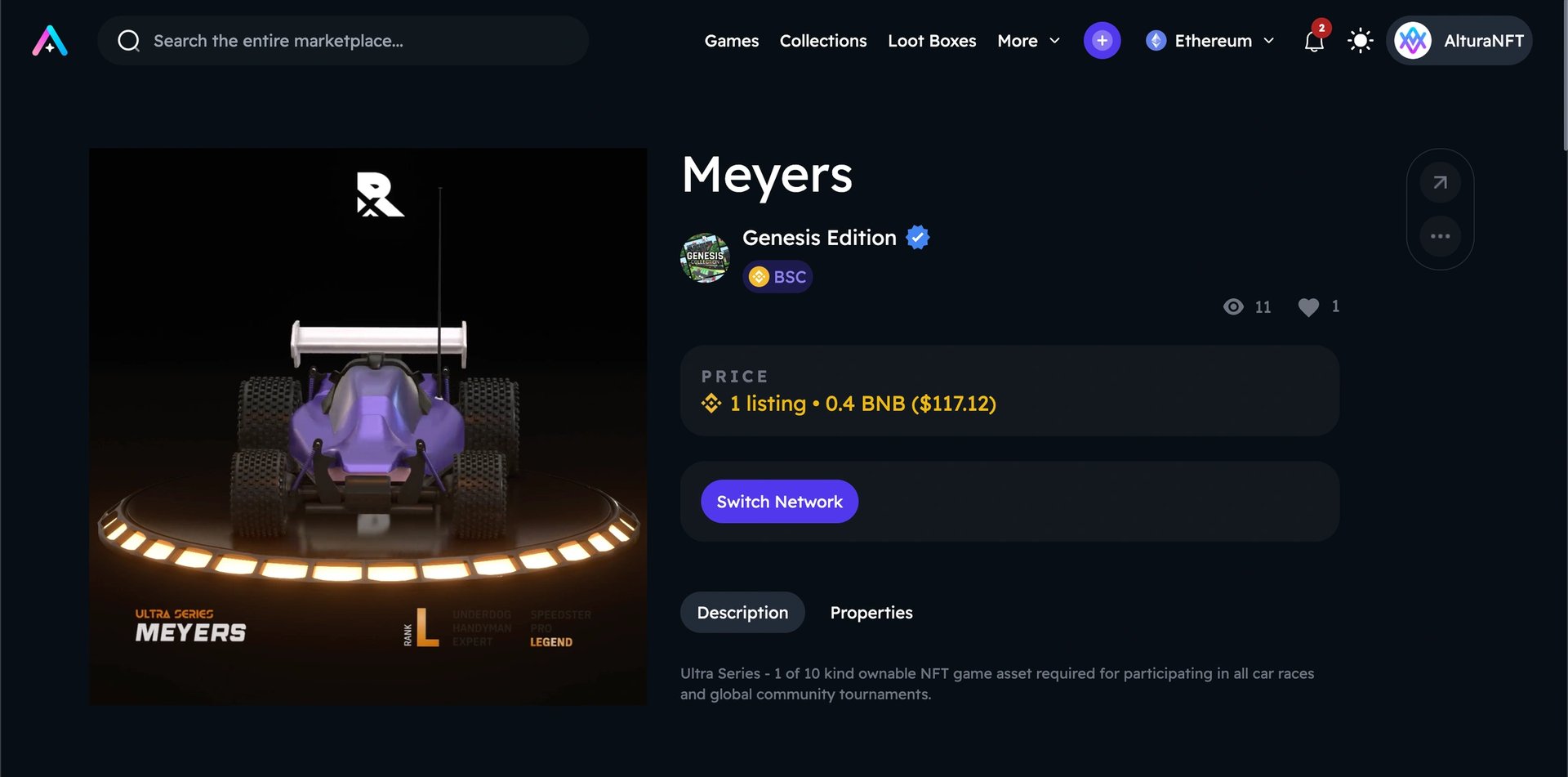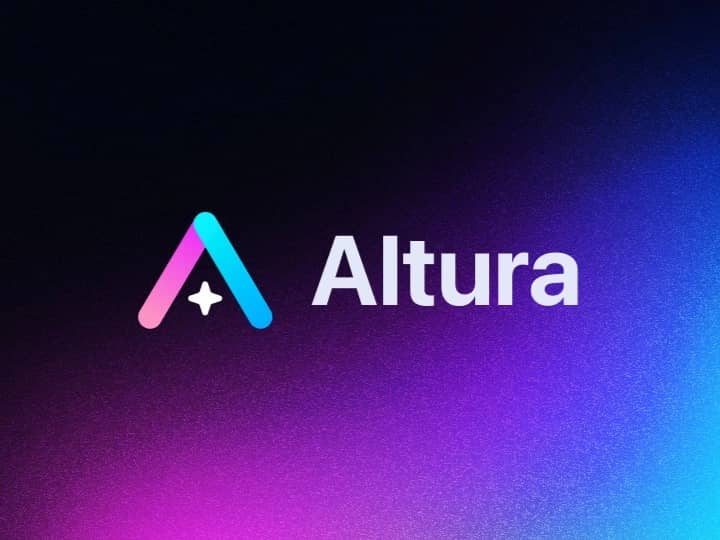Subscribe to wiki
Share wiki
Bookmark
Altura
The Agent Tokenization Platform (ATP):Build autonomous agents with the Agent Development Kit (ADK)
0%
Altura
Altura is a platform that enables the creation, management, and sale of blockchain-based digital assets such as NFTs. It provides tools for developers and creators to implement features like dynamic metadata, gasless transactions, and customizable sale mechanics. [1]
Overview
Altura is a platform that offers tools to support the development and management of Web3 features in games. It provides APIs and SDKs that allow developers to create, modify, and transfer NFTs within games, without requiring extensive technical knowledge or large financial investments. Its authentication features help with user onboarding and asset security, while its marketplace tools enable developers to either list NFTs on Altura’s platform or set up their own customized storefronts.
The platform simplifies the integration of blockchain technologies such as Solidity, Web3.js, GraphQL, and IPFS by offering developer-friendly tools and documentation. This reduces the time and effort typically required to build a Web3 stack from scratch. By streamlining these processes, Altura helps development teams lower operational costs and focus more on game creation.
Altura also offers access to a marketplace and community environment where Web3 participants can list, trade, and discover NFTs. Additionally, the platform supports various blockchain networks and NFT standards, providing developers with a flexible and secure foundation for managing in-game digital economies. [2]
Features
Lazy Minting
Lazy Minting is a method for minting Non-Fungible Tokens (NFTs) where the NFT is only created at the point of sale, rather than upfront. This reduces initial costs and eliminates the risk of paying gas fees until the NFT is sold, making the minting process more accessible for creators.
Lazy Minting offers flexibility, including features like whitelists, tiered sales, time restrictions, and dynamic sale conditions, such as limiting purchases to one NFT per wallet. The process starts with creating an item, followed by managing the sales setup, where creators can specify sale parameters like participant restrictions, minting limits per wallet, and pricing. Once the sale details are set, the sale is finalized and launched. [6]
Smart NFTs
Smart NFTs are programmable digital assets that differ from traditional NFTs, allowing their properties, images, and metadata to change after minting. This dynamic functionality enables real-time interactions between NFTs and applications, which is particularly useful in gaming environments where attributes like health, level, or experience can evolve. Developers can define static and non-static properties during minting—static properties remain fixed, while non-static ones can be updated using Altura’s API or JavaScript SDK. These updates require an API key for the project managing the NFT collection.
In addition to property updates, Smart NFTs support image and metadata changes. Multiple images can be uploaded during minting, with the ability to set or change the primary image. Developers can also add new images post-minting and decide whether to assign them as the primary visual. Names and descriptions of NFTs can be updated anytime by providing the item ID and the new metadata. These features allow for more flexible, responsive, and engaging in-game assets that reflect ongoing gameplay or user interaction changes. [3] [4]
Lootboxes
Lootboxes are virtual containers that hold random NFT items with varying levels of rarity and value. They are often used in gaming to introduce chance-based rewards. They function as mystery boxes, where users purchase a key to unlock unknown contents. Each loot box includes a key and a box image, along with shared names and descriptions that define the item presentation.
To set up a lootbox, developers add NFTs from their collection, specify the number of each item included, and assign rarity levels. These NFTs are approved and transferred to a smart contract tied to the lootbox. Once configured, the lootbox can be launched by defining the key quantity, payment currency, and pricing. This system offers a controlled distribution of NFTs while maintaining randomness and gamified interaction. [8]
Altura Marketplace

The Altura Marketplace is a multi-chain platform that supports Ethereum, BNB Smart Chain, Polygon, Arbitrum, Optimism, Fantom, and Avalanche, allowing users to list, buy, and interact with NFTs across gaming projects. It uses OpenSea’s Seaport contract for efficient transactions and supports various currencies, including native chain tokens and stablecoins like USDC and USDT. NFTs with multiple supplies (ERC1155) can have several listings, and buyers can make time-limited offers. The platform includes tools like a notification system, likes and views tracking, and supports dark and light modes. Detailed NFT pages show metadata, ownership, trading history, unlockable content, and activity logs.
Users can mint NFTs with multiple images and unlockable content, transfer NFTs, update listings, and customize profiles. The marketplace provides detailed filtering, sorting, and search capabilities by collection, game, or NFT traits. Activity and event tracking is available per user, NFT, or collection, with prices normalized to USD. Developers can earn royalties on secondary sales, while Altura collects a 4% transaction fee. [7]
Technology
NPC Engine
The NPC Engine integrates large language models with reinforcement learning to create non-playable characters that adapt to player input and environmental changes. Using transformer-based language models trained on dialogues and game scripts, the engine enables NPCs to engage in natural conversations and make dynamic decisions. A reinforcement learning layer refines behavior through simulated scenarios, optimizing for metrics like engagement and quest outcomes.
NPCs retain context and continuity through vector databases, which store past interactions and decisions as retrievable memory embeddings. The engine uses retrieval-augmented generation to blend this memory data with real-time outputs from the language model, ensuring character consistency. Technologies supporting this system include RL from Human Feedback, simulation-based training, and efficient vector search for memory recall. [10]
NPC Engine Plus
NPC Engine+ expands on the original NPC Engine by introducing player-specific memory. This allows non-playable characters to form personalized relationships and storylines based on individual player interactions. Each NPC retains a dedicated memory store for every player, tracking actions, dialogue, and decisions to enable unique character arcs and narrative branches that evolve with the player's journey.
This system uses reinforcement learning to adapt NPC behavior to each player's style over time, refining responses and deepening engagement across sessions. Personalized vector databases support this by storing and retrieving player-specific interactions, while persistent storage ensures continuity after long breaks between play sessions. [11]
World Engine
The World Engine uses generative AI to create 3D assets and environments compatible with Unity and Unreal Engine. It produces terrain, structures, and environmental elements through multimodal generative models, combining 3D diffusion techniques with transformer-based architectures. Text prompts help guide generation to maintain thematic coherence, such as creating a consistent "mystical forest" environment based on a narrative description.
The engine also uses reinforcement learning to optimize visuals, performance, and navigation. It incorporates feedback and technical constraints to iteratively improve generated content. Assets are automatically adjusted for polygon counts, textures, and physics, ensuring seamless integration into game engines through dedicated Unity and Unreal adapters. [12]
Play Wallet
The Play Wallet is a Web3 gaming wallet that integrates with major gaming platforms and features advanced tools for transaction policy enforcement and fraud detection. It uses large language models (LLMs) to interpret user-defined transaction rules, such as setting spending limits, and applies these as smart filters. For fraud prevention, the wallet employs graph-based machine learning models, particularly graph neural networks (GNNs), to analyze transaction patterns and flag suspicious activity.
The wallet ensures secure key management using on-device hardware security modules (HSMs) or secure enclaves, preventing LLM direct access to private keys. Instead, the LLM guides interactions and performs risk assessments based on external data. It integrates with major blockchains, NFT standards, and asset marketplaces, facilitating seamless asset management while maintaining robust security. [13]
Concierge
Altura Concierge is an AI-powered personal assistant that integrates with a dedicated crypto wallet. It enables users to perform various tasks, including booking travel, trading NFTs, executing crypto transactions, and purchasing goods. The system interprets user requests through large language models (LLMs) and ensures secure transactions with integrated risk assessment and fraud detection systems.
The concierge uses LLMs to understand and process user commands and orchestrate multiple services through APIs, such as travel booking systems, NFT marketplaces, and crypto exchanges. It incorporates graph-based machine learning models to evaluate risks and trustworthiness before executing transactions. Additionally, it retrieves up-to-date market data and user preferences through vector databases to offer tailored recommendations and assist with decision-making. [14]
Altura Guard
Altura Guard 2.0 is a wallet-agnostic authentication system that allows users to securely connect to Web3 games without compromising their private keys. It supports non-custodial wallets like MetaMask, WalletConnect, Trust Wallet, and custodial options via Web3Auth. Users can log in through wallet connections or social accounts, with a five-word code system enabling quick in-game authentication. This code refreshes every 60 seconds and is designed to be simple and user-friendly. Once verified, the system links the user's wallet and permits transaction initiation, though explicit approval is required for each transaction.
Altura Guard 2.0 uses a combination of OpenLogin, Web3Auth, and OAuth to support social logins. This integration enables users to sign in using platforms like Google or Twitter while maintaining privacy. Private keys are never exposed; instead, they are split using Shamir’s Secret Sharing, stored across Web3Auth nodes, then reassembled and signed locally. This setup ensures transactions remain secure and user-controlled, simplifying onboarding while safeguarding digital assets in Web3 games. [9]
Partnerships
- Unity
- Infinity Realms
- Galaxy Blitz
- Fitness Evolution
- World Overlay
- ShoeFy
- FabWelt
- CryptoMeda
- NFT11
- Vmates
- Bird
- ANKR
- Prometheus
- Metagame Arena Studio
- Spintop
- Biconomy
- Mecha Morphing
- Metastrike
- Decent Database
- MetaGods
- Nest Arcade
- Age of Tanks
- DeFly Ball
- SolChicks
See something wrong?
The Agent Tokenization Platform (ATP):Build autonomous agents with the Agent Development Kit (ADK)
